As the world marks International Women’s Day on March 8th, this year’s theme, “DigitALL: Innovation and technology for gender equality,” highlights the importance of harnessing innovation and technology to advance gender equity. While technology has the potential to transform education, employment, health, and entrepreneurship, women are often left behind, making it challenging to achieve gender equity.
The lack of real-time data on girls and women is a significant barrier to achieving gender equity, as it is difficult to develop solutions without it. A recent UN Women report highlights that only 48% of the data required to monitor SDG 5 is available. The report powerfully states: “Where data is missing, women and girls are invisible. In Sub-Saharan Africa, data is missing for both girls and boys, but girls are impacted more, as learning inequities are more common. UNESCO’s 2022 Global Education Monitoring Report reveals that there is no data at all on the learning levels of two-thirds of African children.
Rwanda is making significant progress in bridging the data gap in primary education through its RwandaEQUIP initiative. The Government of Rwanda is committed to promoting ICT-supported education to enhance the quality of teaching and learning in public schools and provide quality education for all Rwandan children.
RwandaEQUIP technology improves school management and accountability; making sure that every school is efficient, effective and transparent. “As educators, it is our responsibility to ensure that every pupil receives quality education that unlocks their full potential. With RwandaEQUIP technology, we have the tools to support our teachers’ performance in the classroom and monitor our schools’ progress in near real time. By leveraging digital insights on lesson delivery, attendance, and learning outcomes, we can make evidence-based decisions that inform policy and ensure that no child is left behind.”- Uwizera Bernadette, Head Teacher GS Nyanza.
RwandaEQUIP equips teachers with high-quality digital teaching guides that not only improve quality instruction in class but also enable careful monitoring and evaluation of the progress of each child across indicators like pupil attendance and academic performance. This approach has been proven to increase girls’ attendance and learning outcomes, as well as their likelihood of transitioning to secondary school.
Through the RwandaEQUIP approach, teachers are equipped with the big four key skills of effective teaching that not only improve learning outcomes but also address gender-specific barriers. One such technique is known as cold calling, that encourages teachers to engage both boys and girls in the classroom, ensuring equal participation of girls who may be less likely to volunteer in class.
According to a report by Nobel Prize-winning economist, Prof. Michael Kremer, the education methodology employed by RwandaEQUIP, which is both holistic and highly structured, has been found to be effective in transforming learning outcomes in Africa and Asia at a speed and on a large scale. The study also revealed that girls and boys in NewGlobe support schools experienced equally significant learning gains, thereby endorsing the efficacy of this education intervention.
In conclusion, by promoting ICT-supported education and gender-responsive techniques, Rwanda is taking significant steps towards closing the data gap while making progress towards gender equality in the digital age. However, achieving gender equity requires a concerted effort from government, development partners, civil society and the private sector, as well as a willingness to challenge traditional gender roles and biases. It is essential to ensure that all pupils have access to digital resources and tools such as computers, smartphones and internet connectivity. This access will enable them to gain the skills and knowledge needed to use technology to solve real-world problems.


